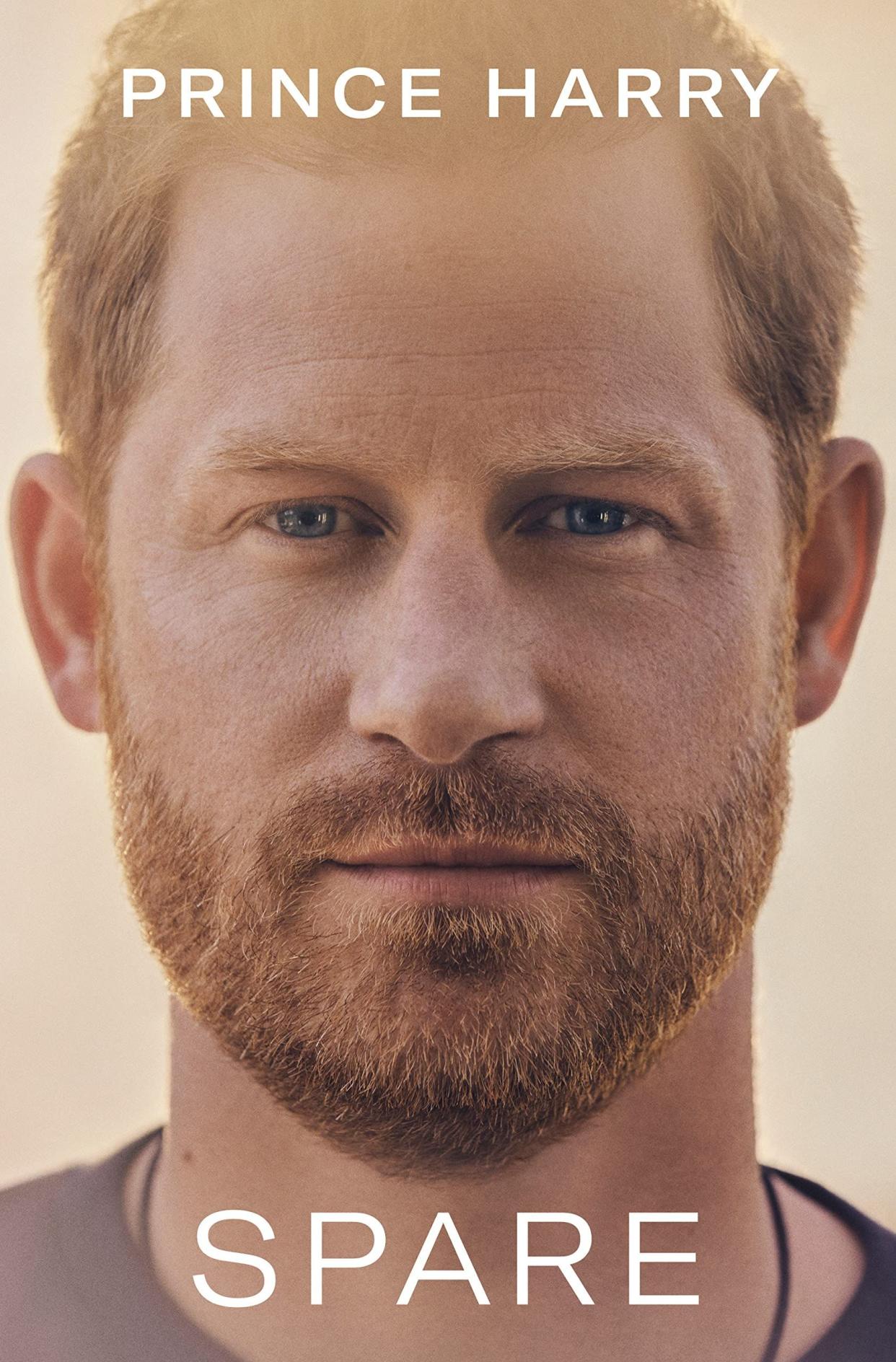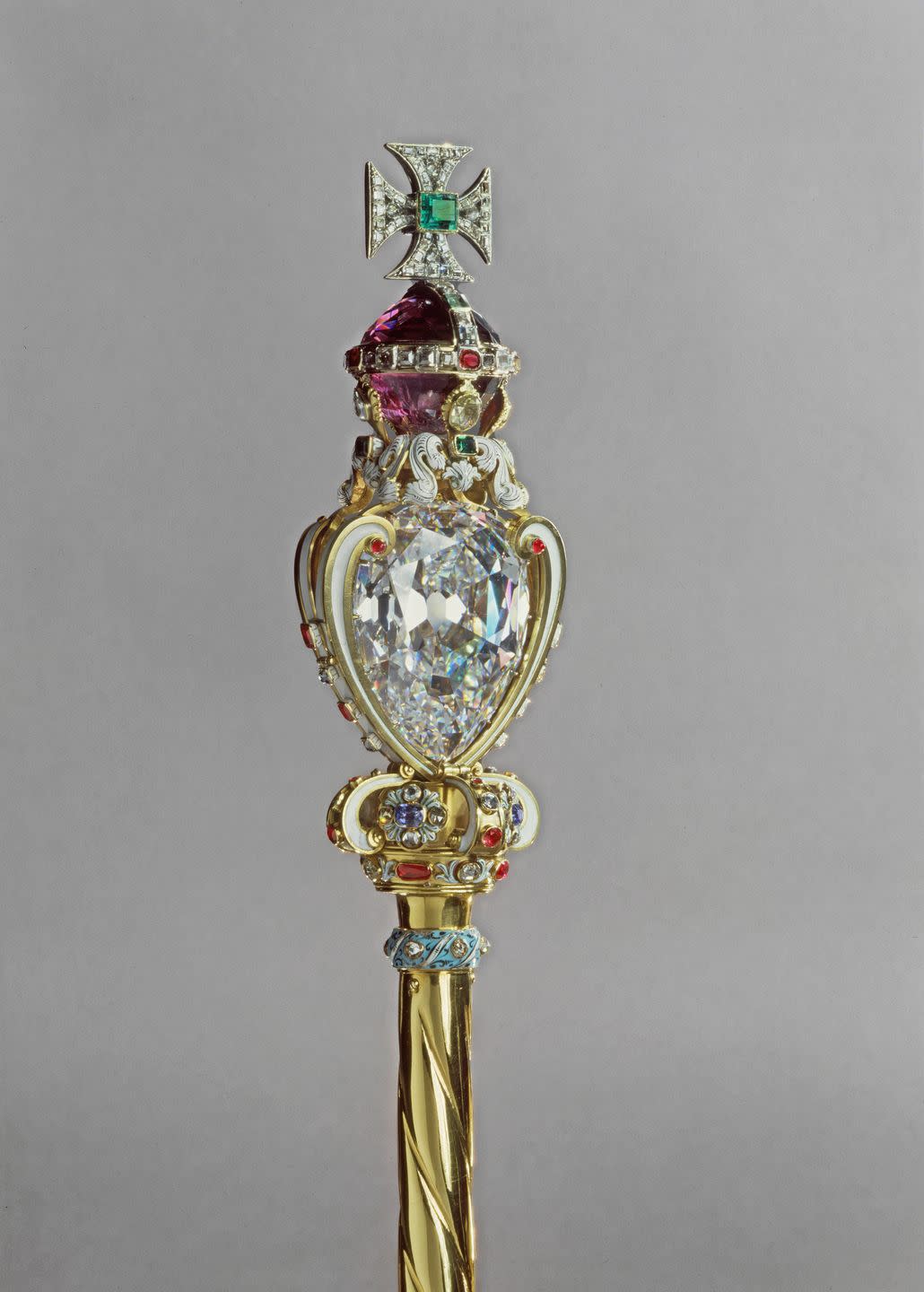The 9 Biggest Controversies Surrounding the Coronation
"Hearst Magazines and Yahoo may earn commission or revenue on some items through these links."
King Charles's coronation is here, and with it, there's a fair share of drama. Here, the nine biggest controversies surrounding the coronation:
1. The cost of the whole thing
The United Kingdom is currently dealing with a cost of living crisis. Since the coronation is a state event, it will be paid for by the UK government—with an estimated cost between £50-100 million. Having an event that costs millions while everyday folks are struggling to make ends meet is, simply, not a good look. The defense of the cost is that it will bring in a boon to the economy, specifically in the hospitality industry, but that remains to be seen.
"We're struggling for heating and eating and they're splashing all this money out," one pensioner told BBC. "It is a lot of money to pay out and I think, in this day and age, they need to do it on a low budget."
2. The Harry and Meghan of it all


Spare
$19.99
amazon.com
When Prince Harry's memoir Spare came out, there was quite a bit of hand-wringing about what Harry revealed in his book—including intimate details about his relationships with his brother, Prince William, and stepmother, Queen Camilla. In an interview, ITV's Tom Bradby asked Harry if he would come to the coronation, to which Harry said, "There's a lot that can happen between now and then. But, the door is always open. The ball is in their court. There's a lot to be discussed and I really hope that they're willing to sit down and talk about it."
We now know that Prince Harry is attending (sans Meghan and their kids, Prince Archie and Princess Lilibet), but the will-they-won't-they of the Sussexes attendance at the coronation was a huge storyline in the lead-up to May 6.
All eyes will be on Prince Harry at Westminster Abbey tomorrow: Where will he sit? Will he interact with Prince William and his sister-in-law Kate Middleton? What's his relationship like with King Charles right now?
3. The Prince Andrew problem
The mere presence of King Charles's brother, Prince Andrew, remains a source of controversy for the British royal family. In 2019, following revelations surrounding his relationship with convicted sex offender Jeffery Epstein and the fallout from a BBC Newsnight interview he did, he stepped back from public duties. In 2019, he said, "I continue to unequivocally regret my ill-judged association with Jeffrey Epstein."
It is believed that he will attend the coronation, but he will have no role in the ceremony. He most recently appeared with the rest of the royal family at Easter Sunday services, walking alongside his sister, Princess Anne.
4. The "Homage of the People"
One of the biggest differences between King Charles's coronation and past coronations is the homage part of the ceremony. Instead of all the royal princes paying homage (which would include Prince William, Prince Harry, Prince Andrew, and Prince Edward), only Prince William will do so, on behalf of the whole royal family.
To replace the homage of the peers, the ceremony adds an "Homage of the People," where the Archbishop of Canterbury will say, "I call upon all persons of goodwill of The United Kingdom of Great Britain and Northern Ireland, and of the other Realms and the Territories to make their homage, in heart and voice, to their undoubted King, defender of all." In response, "all who so desire"—both in Westminster Abbey and "elsewhere"—will pledge, "I swear that I will pay true allegiance to Your Majesty, and to your heirs and successors according to law. So help me God."
The Church of England notes in its annotated liturgy, "This is a new and significant moment in the tradition of the Coronation. Never before in our history have the general public been offered such an opportunity to join with national figures in declaring their allegiance to a new Sovereign."
The homage of the people has not been received positively by, well, many of the people. Good Morning Britain, a British morning show, asked its Twitter followers if they would participate. 86% said they wouldn't:
Will you pledge allegiance to King Charles III during the coronation?
— Good Morning Britain (@GMB) April 30, 2023
Republic, the anti-monarchist group said, "In a democracy it is the head of state who should swear allegiance to us. This is an offensive and tone-deaf gesture that holds the people in contempt."
5. Controversial sceptres used in the ceremony

Many of Britain's Crown Jewels are controversial, especially the Koh-i-Noor diamond at the center of the Queen Mother's coronation crown. (Queen Camilla will not wear it; instead, she will wear Queen Mary's Crown.)
But two sceptres that will be used are viewed as problematic: the Sovereign's Sceptre with Cross and the Queen Consort's Rod with Dove. The first features the Cullinan diamond, also known as the Great Star of Africa, a diamond discovered in a mine in South Africa in 1905 after British colonization. "The Cullinan Diamond must be returned to South Africa with immediate effect," activist Thanduxolo Sabelo told South Africa's Times this past fall. Sabelo added, "The minerals of our country and other countries continue to benefit Britain at the expense of our people." University of South Africa professor Everisto Benyera told CNN that he views the gem as a blood diamond. Other parts of the Cullinan diamond will feature in Charles's Imperial State Crown and in Camilla's crown.
The rod Camilla will be given during the ceremony is also controversial; made in 1685, it is made of ivory. In 2014, Prince William reportedly campaigned for all items containing ivory removed from the Royal Collection. Dr Paula Kahumbu, executive director of Wildlife Direct, said at the time, "Ninety nine per cent of ivory that is in people's hands comes from elephants being gunned down. Handing it in shows: 'I'm going to wash my hands of this despicable business.' It shows the royals are not above taking a practical, personal action. It would probably result in similar support from other countries." Using the ivory sceptre is against this entirely.
Read more here:
6. The star power—or lack there of—at the Coronation Concert
On Sunday evening, the royals will attend a concert at Windsor Castle to celebrate the coronation. Katy Perry, Lionel Richie, Take That, and more are slated to perform at the concert—but reportedly, they were not the Palace's first choice.
Apparently, Harry Styles, Elton John, Adele, the Spice Girls, and Ed Sheeran all said no to performing at the concert. A source told the Daily Mail, "The King has suggested a number of people he would like to perform and Adele and Ed were on that list. He was very keen that they were part of the concert. There is a team set up to get the talent signed up but they were unavailable, which was a massive disappointment. They are titans of the showbiz industry and are quintessentially British but also known across the globe. It's such a shame."
7. Queen Camilla's title
When King Charles and Queen Camilla married, the royal family said she would be known as "HRH The Princess Consort" when Charles accedes to the throne. Last year, Queen Elizabeth weighed in on the question of Camilla's title, writing in her Platinum Jubilee message, "it is my sincere wish that, when that time comes, Camilla will be known as Queen Consort as she continues her own loyal service." After the death of Queen Elizabeth, the Palace confirmed Camilla would use the "Queen Consort" title, but after the coronation, she will likely just go by Queen Camilla (as revealed on the coronation invitation). This isn't that controversial, but it is dredging up the controversy surrounding the origins of her relationship with Charles, which began while he was still married to Princess Diana; Charles admitted his infidelity in 1994.
8. Sinn Féin's vice president to attend the coronation

One RSVP on the guest list for the coronation has caused uproar in Northern Ireland: Michelle O'Neill, the vice president of republican party Sinn Féin (formerly the political wing of the Provisional IRA). Sinn Féin does not recognize British sovereignty in Northern Ireland, nor the British monarch. Per the BBC, "Sinn Féin MPs do not take their seats in Westminster partly because they are required to take an oath of allegiance to the head of the Royal Family."
So why is O'Neill attending? She said, "I am an Irish Republican. I also recognise there are many people on our island for whom the coronation is a hugely important occasion. I am committed to being a first minister for all, representing the whole community, building good relations between the people of these islands, and advancing peace and reconciliation through respectful and mature engagement." She'll be accompanied by Alex Maskey, Speaker of the Northern Ireland Assembly.
This was a controversial decision. Northern Irish politician Gerry Carroll tweeted, "James Connolly stood against the British Monarchy describing it as the 'tyranny imposed by the hand of greed and treachery upon the human race.' He would turn in his grave to see the likes of Michelle O’Neill and Alex Maskey supporting the Coronation of the British King—which is all about rehabilitating the Monarchy, an institution steeped in privilege, racism and imperialism." Many critiques were along similar lines.
9. Last but not least: the British monarchy itself
This is an existential drama, but a real one: Should the British monarchy continue? Here's a sampling of headlines from the week leading up to the coronation:
Charles’s Coronation Brings Up Mixed Feelings About the British Monarchy (The New York Times)
Charles is king, but the monarchy may soon be on its way out of Jamaica (The Guardian)
Many Canadians are done with the monarchy — but the GG says they should give Charles a chance (CBC News)
Has Britain fallen out of love with the monarchy? (The Telegraph)
And on and on... The coronation of King Charles has become a real moment of reckoning for the future of the monarchy itself. A YouGov poll commissioned by BBC’s Panorama found that only 32% of 18 to 25-year-olds believe the monarchy should exist. As Victoria Murphy wrote in Town & Country, "As the public lines the streets this weekend, whether it be to show a rousing support for the monarchy or out of curiosity for this unique moment in history, they will be treated to a display that no-one has seen for 70 years. The monarchy has a lot to gain or lose from whether they come away feeling like they have witnessed a powerful showcase of Britain today, or something that belongs in the past."
You Might Also Like
